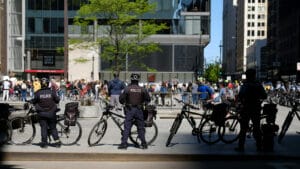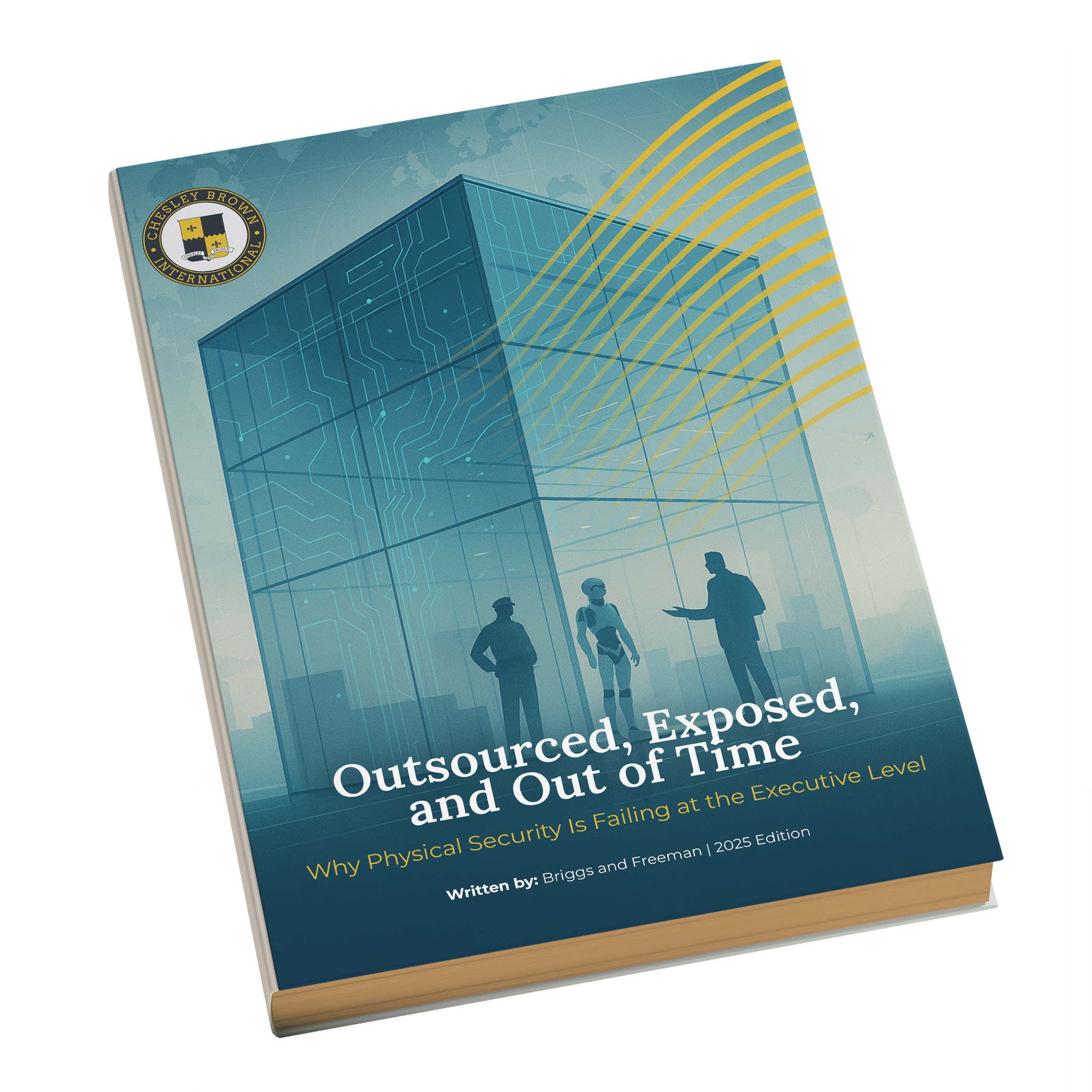Written by: James Hart
Nothing beats spending the day at an outdoor festival. Who doesn’t love being part of a large, happy crowd enjoying delicious food, exciting music or beautiful art?
Unless, of course, a brawl breaks out. Or there’s a medical emergency. Or — worst of all — a mass casualty event occurs.
Fortunately, those incidents tend to be the exception and not the rule when festival security teams are on the ground. Forward-thinking event organizers hire professional security to identify potential threats and quickly address any issues.
“You can have the best event in the world, but if there’s a major security incident, people aren’t going to attend anymore,” said Bryan Taylor, vice president for eastern operations at Chesley Brown, the security management and consulting firm. “It can absolutely destroy your festival. That’s why you have to keep safety and security top of mind.”
And that can be challenging. Festivals attract big crowds that may or may not be on their best behavior. Many events also lack controlled entrances. As a result, organizers don’t always know who is on the grounds or what they brought with them.
Fortunately, professional security can reduce many of those risks. Here are a few tactics for harnessing their expertise to ensure everyone has a fun, safe time at your event.
Identify Your Security and Safety Risks Early
To prevent some of the worst problems, the festival security team should conduct a risk assessment early in their planning process.
It all starts with understanding the type of event that will be presented, Taylor said.
How Many Attendees Are Expected, and How Big Is the Festival’s Physical Footprint?
Bigger crowds can lead to bigger problems so organizers may need additional security officers. Depending on attendance numbers, organizers might consider expanding their footprint or adding another day to their calendar to prevent crowding.
Is Alcohol Being Served?
Not everybody drinks responsibly. Having alcohol at your event could lead to more fistfights. If you have hot weather, alcohol could exacerbate cases of heat exhaustion, too.
“We always say: anytime you add alcohol, you add potential problems,” Taylor noted.
Will There Be Musical Entertainment?
“Different performers attract different kinds of audiences,” Taylor said. If your headliner is a country star known for a party-hard vibe, that could encourage the audience to get rowdy, too.
Are Political Leaders Expected to Attend?
Elected officials and political candidates love to attend festivals and connect with the public. Unfortunately, not everybody is going to be happy to see them. They could attract protesters or even an armed attacker.
None of this means that festivals should avoid having music or beer, or ban politicians from the grounds. Identifying these risks just gives security the advance knowledge they need to prepare.
Festival organizers should give their security team as much time as possible to conduct a risk assessment. Taylor has worked on festivals with as little as two to three weeks to prepare, but more time will lead to better results.
Invest in Trained, Seasoned Security
Organizers should partner with a professional security firm that can provide security officers and deliver expert recommendations, Taylor said. This is a big difference from calling a staffing firm that can offer personnel on demand, but not much else.
If you call ABC Security and request 10 security officers, then ABC Security will send you 10 security officers at the appointed date and time, Taylor said. This is how less experienced event organizers tend to hire security.
“But those 10 people will have no idea what they’re doing when they get there,” he noted. “They’re going to be told, ‘You stand here, you do this and if you see this, you do that.’ If everything goes smoothly, great. They will probably keep the honest people honest, hopefully. But that’s about all you can expect.”
How Many Security Officers Are Needed?
There are no hard and fast rules for staffing. The footprint of the festival could be a factor. Events with alcohol probably need more officers, too.
Organizers should also determine how many “hard posts” there are, Taylor said. These are places that must be staffed at all times, like the stage or any entrances. Not only will officers be needed for those spots, organizers should plan to have officers ready to relieve them.
Having more experienced security officers may reduce the number of personnel required. Event organizers often find they can get along with a smaller security team if its officers are more seasoned.
“Sometimes festival organizers want 50 officers,” Taylor said. “Instead, we’ll recommend 25 of our really solid security professionals. A lot of them are going to be management-level staff. And it’s more effective.”
Because of their experience, those security officers are usually better at spotting problems and intervening before the situation gets out of hand.
“Instead of just having bodies on every corner because it feels or looks appropriate, we have floating security officers who are highly trained and can actually react to situations,” Taylor said. “They know what to do and can communicate with the police. They’re medically trained, too, so our security officers can provide first aid until emergency medical services arrive.”
“As a policy, the firm has its festival security work in pairs,” Taylor said. They’ve found that a small team can handle most basic incidents on their own.
A single, less experienced officer might be more likely to call for help, which could draw a dozen other officers to that location and leave other areas understaffed.
Best Practices for Festival Security
There are several other steps that organizers should take to ensure adequate security.
Partnership with Police, Fire and EMS
Part of your security planning should include outreach to the local authorities. This ensures that you seek out the correct permits and stay in compliance with any regulations.
And it gives the authorities early warning so they can make their own plans. If there’s a major incident, after all, they will need to respond, too. In fact, most departments will probably want to have personnel at the event.
This is especially true for emergency medical services. Your planning should identify locations where ambulances can be stationed for quick response to medical calls at the festival and for a speedy exit from the property.
Barriers, Signage and Line Control
If your festival is big enough and popular enough, there will be lines. But you don’t want them to grow so long or disorganized that it’s impossible for attendees to walk through the area.
Using barricades and signage, it’s possible to put some order to the lines and show people where they should stand. That was one of the first recommendations that Chesley Brown made to one client.
“Without proper barriers and crowd control, the lines for some of the more popular tents were running into each other and clogging the throughway,” Taylor said. “People walking up and down couldn’t even get through, let alone any emergency personnel.”
CCTV and Drones
Taylor strongly recommends placing closed-circuit cameras throughout the festival grounds, even if the cameras are temporary. It’s another way for the security team to maximize its effectiveness.
“There are two ways to do it,” he said. “Preferably, you have someone hired just to monitor the live feeds and dispatch security officers to any suspicious activity. You can also set up the cameras so their feeds can be viewed on smartphones. Officers on patrol can view cameras in other areas and head there if they’re needed.”
Drones are another game-changer for security teams, Taylor said.
Chesley Brown recently provided security for a 5K run and worked wit
h a team that used drones to monitor the roads and verify they were clear so the race could start. Even better, the drones had an AI component. Security used them to identify where some runners had gotten lost and left the course, allowing officers to go and find them.
Reliable, Secure Radio Communication
Equipping your security officers with radios is good, but ideally, they should have earpieces and microphones, too.
They need a way to communicate with each other and the festival’s command center. But only using radios has two big drawbacks:
- It can be harder for security officers to hear what’s being said, especially if they’re working in a crowd or next to music.
- Some messages need to be kept private. A radio without an earpiece makes it easy for bystanders to overhear information that should be secret.
The Bottom Line About Festival Security
Professional security makes it possible for guests to have a great time at festivals and other outdoor events. An expert team can conduct a thorough risk assessment and prepare for threats that otherwise might have gone unnoticed. Combine that planning with highly trained officers, and you can greatly reduce the risks that your festival faces.
If you’re planning a large event and need assistance with security strategy and planning, Chesley Brown can help. The firm will employ its decades of expertise to create a comprehensive plan that’s tailored to your unique challenges and needs. Learn more about their capabilities — reach out today.
Sign up!
For industry-leading guides and analysis sign up for our blog below.
Latest News
Election Day: Planning for Civil Unrest
Protecting your business in the event of election day civil unrest requires planning. Here we discuss four proven strategies for Civil Unrest
The Transformational Power of Threat Assessments
Ignoring Risk won’t make it go away Cyber crime is one of the most insidious threats facing businesses. As reported here, more than 50% of businesses have suffered cyber attacks–70% of them being small to…
3 Practical Strategies to Protect Your Small Business During Covid-19
October 15, 2020 / Justin Hayes Ensure the Future of Your Company Small to medium-sized enterprises (SMEs) comprise a massive portion of American industry. In fact, 99% of all businesses have less than 500 employees;…
The Anatomy of a Crisis Management Plan
4 key strategies to protect your business against risk By Justin Hayes No executive expects a crisis to strike. But every day organizations fall prey to the unforeseen. One study found that 40% of businesses…
risk-takers #9. Joe Sheram – The Turnaround Guru
Brent sits down with corporate turnaround expert Joe Sheram to discuss financial risk, corporate theft, the importance of cash, and some of the biggest challenges businesses face when navigating a crisis from a financial perspective. Joe has helped countless organizations restructure, and strategize their way through some of the most complex and serious issues a business can face.







